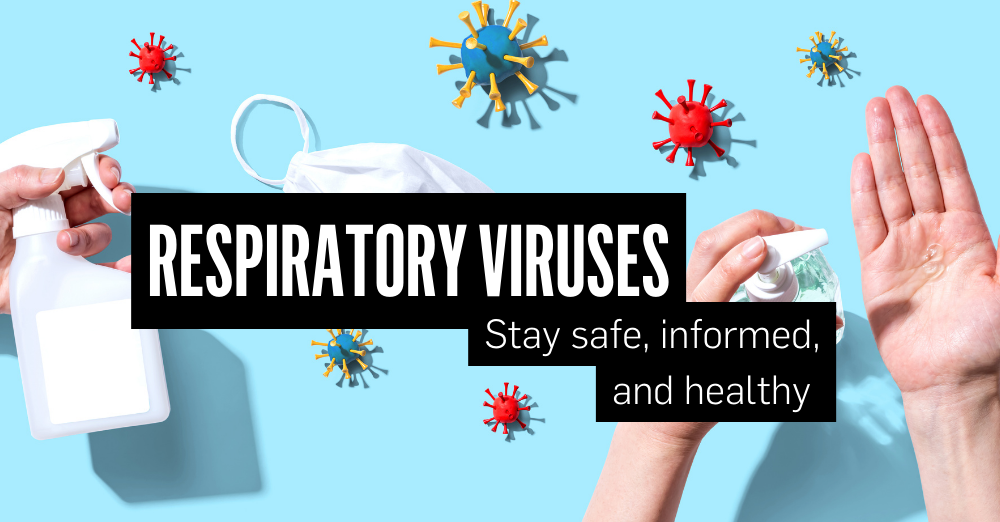
Care for the Flu
Each year, everyone, six months of age and older, needs to be vaccinated against influenza (flu) by the end of October, if possible. Protecting people living with Duchenne is especially important. A 2005 study done by the CDC found that children with neuromuscular disease are at a six-times greater risk of flu-related respiratory failure. So please vaccinate yourself, your child, and all members of your family
Influenza Vaccines
In the United States, the Centers for Disease Control and Prevention develop a vaccine that includes protection against the strains of influenza that were most prevalent in Australia the season before. These vaccines are provided to the public with varying degrees of success. Getting the vaccine does not mean that you won’t get a flu, but it DOES mean that you are unlikely to get the influenza strain that the CDC feels will be the biggest threat and, if you do get that strain of influenza, your illness should be much less severe because you have received the vaccine.
There are different types of vaccines for influenza. Vaccinations, including influenza vaccines, are discussed in detail on this page. People living with Duchenne should only receive the injectable influenza vaccine, rather than the live virus nasal spray.
Symptoms of the flu
Symptoms of flu may include:
- Fever, chills (though not everyone with flu will have a fever/chills)
- Cough
- Sore throat
- Runny or stuffy nose
- Body aches
- Headache
- Fatigue (tiredness)
- Sometimes diarrhea and vomiting
Symptoms usually appear 1 to 3 days after exposure. Although most people are ill for less than a week, some people have more serious complications that may require hospitalization.
Medical Management of the Flu
The influenza vaccine only protects against certain types of the flu, and is not always 100% effective, even against those certain types. People living with Duchenne are especially vulnerable to the effects of the flu, especially the pulmonary effects.
If your child has symptoms of the flu, call your primary health care provider immediately!
Rapid diagnostic testing, which checks secretions in the throat for the influenza virus, is 50-70% accurate for diagnosing influenza (most providers will send a negative specimen for culture, just to be sure that there is no virus present). If the test is positive, starting an antiviral medication is recommended.
Antiviral medication should be started as soon as possible in the course of the illness and continued for 5 days. It is best if this medication is started within 48 hours of the beginning of symptoms, but the treatment can still have some benefit if started later, especially for patients who are experiencing a longer or more complicated course.
Antiviral medications
Antiviral medications can lessen symptoms of the flu and shorten the time of illness by 1-2 days. They can also prevent serious complications of the flu, like pneumonia.
There are three antiviral drugs recommended by the CDC:
- Oseltamivir (TamifluR): approved for children >2 weeks; available in pills or liquid
- Zanamivir (RelenzaR): approved for children >7 years; not recommended if there is underlying respiratory dysfunction; given via inhaler
- Baloavir (XofluzaR): single dose pill approved for early outpatient children >12 years
The most common side effects of any antiviral drugs are nausea and vomiting; Zanamivir (because it is inhaled) may cause difficulty breathing and diarrhea. Rare occurrences of neuropsychiatric events have been associated with Tamiflu.
Clinical judgment, on the basis of the patient’s disease severity and progression, age, underlying medical conditions, likelihood of influenza, and time since onset of symptoms, is important when making antiviral treatment decisions for high-risk outpatients.
Besides antiviral medication, what other “over the counter” medications are safe to give a person with Duchenne?
You should always check with your primary health care provider and/or your neuromuscular provider regarding the safety and dosing of any medications. Over the counter medications that are generally safe for colds and flu can be found below. If you/your child has a fever over 1040 F that is not responding to Tylenol (going down to at least 102o F within 1-2 hours of giving Tylenol), please ask your primary care provider and neuromuscular team if it is safe to use ibuprofen (AdvilR) and/or naproxen (AleveR). Be sure that the person that you ask is aware of ALL medications that are being taken (including ACE inhibitors).
For children over 4 years, the following over the counter medications are generally safe for people with Duchenne to take:
- Tylenol (acetaminophen)
- Cough medicine without Sudafed – cough medicine with cough suppressant should be used if the cough is interfering with sleep; using cough medicine with cough expectorants, using Mucinex, maximizing hydration, and using the cough assist during the day may help minimize coughing at night
- Cough drops
- Mucinex (check with your pulmonologist; some pulmonologists caution against using Mucinex in patients with breathing dysfunction; the thinned secretions may cause aspiration of the secretions, which can lead to an increased risk for pneumonia)
- Saline nose drops/spray
CDC Recommendations
The CDC recognizes that people living with neuromuscular disease are at higher risk for developing more serious complications from influenza. For that reason, prophylaxis (antiviral medication) may be suggested for people with Duchenne who are living with household members who have been diagnosed with influenza.
If it is felt to be appropriate to begin antiviral medication, antivirals should begin on the day of the household member’s diagnosis. Again, clinical judgment, on the basis of the patient’s disease severity and progression, age, underlying medical conditions, and likelihood of developing influenza, is important when making antiviral treatment decisions for higher-risk outpatients.
WHEN TO SEEK EMERGENCY CARE
Typical symptoms of the flu include fever, cough, sore throat, runny/stuffy nose, body aches, headache, chills and fatigue. Occasionally symptoms may include vomiting and diarrhea. There may also be respiratory symptoms without fever.
There are warning signs that you/your child need emergency care immediately. These include:
In children
- Fast breathing or trouble breathing
- Bluish lips or face
- Ribs pulling in with each breath
- Chest pain
- Severe muscle pain (child refuses to walk)
- Dehydration (no urine for 8 hours, dry mouth, no tears when crying)
- Not alert or interacting when awake
- Seizures
- Fever above 104°F
- In children less than 12 weeks, any fever
- Fever or cough that improve but then return or worsen
- Worsening of chronic medical conditions
- Dark urine, indicating rhabdomyolysis
In adults
- Difficulty breathing or shortness of breath
- Persistent pain or pressure in the chest or abdomen
- Persistent dizziness, confusion, inability to arouse
- Seizures
- Not urinating
- Severe muscle pain
- Severe weakness or unsteadiness
- Fever or cough that improve but then return or worsen
- Worsening of chronic medical conditions
- Dark urine, indicating rhabodymyolysis
These lists are not all inclusive. Please consult your medical provider for any other symptom that is severe or concerning.
Missing corticosteroid doses
If you/your child is taking corticosteroids regularly (daily, every other day), it is very important that you NOT miss doses.
If you/your child has missed 24 hours of corticosteroids, it is very important that you contact your primary care/neuromuscular provider for IV corticosteroid dosing.
Missing 24 hours, or more, of corticosteroids can result in acute adrenal insufficiency, which can be a life threatening condition. Please refer to the PJ Nicholoff Steroid Protocol (download) for any questions or concerns.
coughing/breathing
Caring for your child’s lungs when they have the flu is critical. Information on caring for the lungs, the importance of cough, and assisting cough during an illness can be found on the PPMD website.
Staying as Healthy as Possible
What else can I do to stay as healthy as possible?
- Wash hands often with soap and water for 15-20 seconds, especially after using the restroom and changing diapers.
- If soap and water is not available, use an alcohol based hand sanitizer.
- Wash your hands before preparing food or eating.
- Avoid sharing utensils with or drinking after someone who is sick.
- Avoid touching eyes, nose, and mouth with unwashed hands.
Pearls of Care
- Be sure all family members have been immunized against influenza.
- If you think you/your child with Duchenne has the flu, contact your primary care and/or neuromuscular provider immediately.
- Use antivirals as recommended (for your child’s flu treatment or for prophylaxis).
- Take recommended over the counter medications.
- Maintain cough and breathing.
- Do not miss more than 24 hours of corticosteroids; if more than 24 hours of corticosteroids are missed, call your primary/neuromuscular provider for IV or IM steroid coverage in order to prevent acute adrenal insufficiency, which may be life threatening. Please refer to the PJ Nicholoff Steroid Protocol for any questions or concerns.
- Go to the emergency room if necessary; take all of your medications and equipment with you.
- Continue to do what you can to stay as healthy as possible.
Drs. Richard Shell, Lisa Wolfe, and O. Hank Mayer presented a session on acute pulmonary management as part of our 2020 PPMD Virtual Conference. Watch HERE for information on prevention, emergency planning, and lessons learned from COVID-19.







